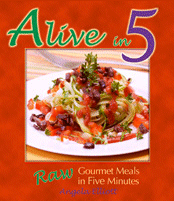|
Eight Tips to Lower Your
Grocery Bill
in a Time of Rising Food Costs
by www.SixWise.com
Food
prices are soaring across the United States, threatening
to squeeze many families' food budgets dry. According to retail
analyst Howard Davidowitz in a National Public Radio interview,
"Americans used to spend 10 cents [of every dollar] on
food and energy; they're now spending 17 cents."
|

You can often save money on food just by not shopping
at your grocery store. Farmer's markets and food coops
often have better deals -- and fresher selections.
|
On top of that, grocery stores are in the business of making
you spend money once you step inside, so in times like these,
it's imperative to know what you're doing.
Fortunately, with a bit of savvy, you can save a significant
amount of money -- even up to $100 a month -- on your food
bill, even with today's premium prices.
- Make a list. Shoppers usually buy more than half
of their groceries from a list of 150 products. What happens
to the thousands of other products on the shelves? They
become impulse buys.
"Their [Shoppers] other purchases often are impulse
buys that can add to the grocery bill unnecessarily,"
said Mary Meck Higgins, Kansas State University Research
and Extension nutrition specialist. "Impulse purchases
also can increase when shoppers are hungry or shop without
a list."
So be prepared with a list of items you need in hand,
and vow to only buy those particular items.
- Shop the perimeter of the store. That's where you'll
usually find the basics like produce, meat, dairy and bread.
Step into the interior aisles and you've entered the land
of high-cost (and tempting) processed foods. Stay on the
outer aisles and you'll eat healthier and save money all
at the same time.
|
Waste Not, Want Not

The most expensive food is any item you end up throwing
away. If you need help figuring out what to do with
fresh produce before it goes bad, check out the delicious,
and fast, raw food recipes in Alive
in 5: Raw Gourmet Meals in Five Minutes.
|
-
Buy generic. Often, generic products contain the
same ingredients as name-brand versions at a fraction
of the price. They may even have come from the same factory.
All you need to do is compare the nutrition information
on packages. If the ingredients are the same, the product
probably is as well. Do watch out for extra additives
or imitation ingredients, though -- some generic versions,
for instance Parmesan cheese in a carton, may contain
lower quality ingredients or more additives than the real
thing.
-
Plant a garden. Even a small one can provide enough
produce to feed your family. "It's really saving
me money, a substantial amount," Hubert Emsermann
told The Herald of his garden. "It's amazing how
much that little garden produces."
-
Consider joining a local food coop. Often, you'll
get fresh organic produce, eggs, dairy and grass-fed meets
for less than you could ever find them in a store. LocalHarvest.org
is a great resource to find a food coop near you.
-
Look at the unit prices. This will help you to
determine if buying the gigantic can of tomatoes is really
cheaper than two smaller ones, or if an item in sale is
really a good deal. Sometimes stores display unit prices
right on the price tag on the self. If not, you may want
to bring a calculator with you.
|

Shopping at ethnic markets is another way to save.
They often have great deals on staples like rice, pasta
and spices.
|
-
Be aware of what you pay for convenience. Veggies
and fruits that are cut, washed and ready-to-eat are almost
always pricier than whole varieties. Same goes for "grill-ready"
and pre-stuffed or marinated meats. You'll usually also
pay more for cheese from the deli counter than in the
refrigerated section because it has to be sliced.
-
Visit farmer's markets and ask for the leftover produce.
Most sellers will have produce left that they can't sell
and would simply go to waste. If you don't mind sorting
through produce that may be a few days old and pulling
out the "good stuff," you can get high-quality
veggies for nothing. Often, farmers will be glad to let
you have it so they don't have to haul it away.
Recommended Reading
Should
the United States' Food Origin Law be Revived?
What
Health Experts Criticize Most About the Food Pyramid
Sources
MiamiHerald.com
May 15, 2008
RedOrbit.com
May 14, 2008
Kansas
State University Research and Extension
|